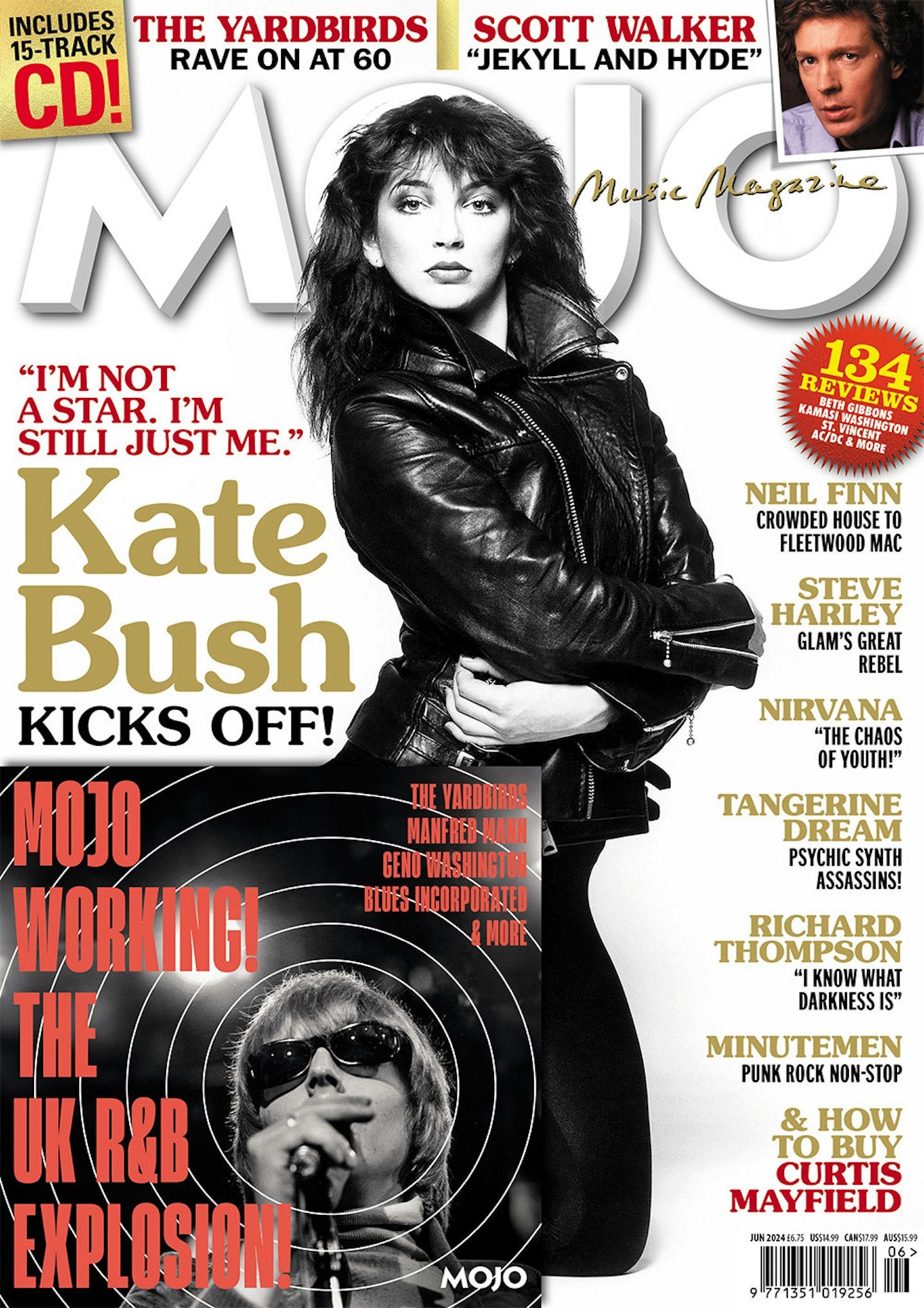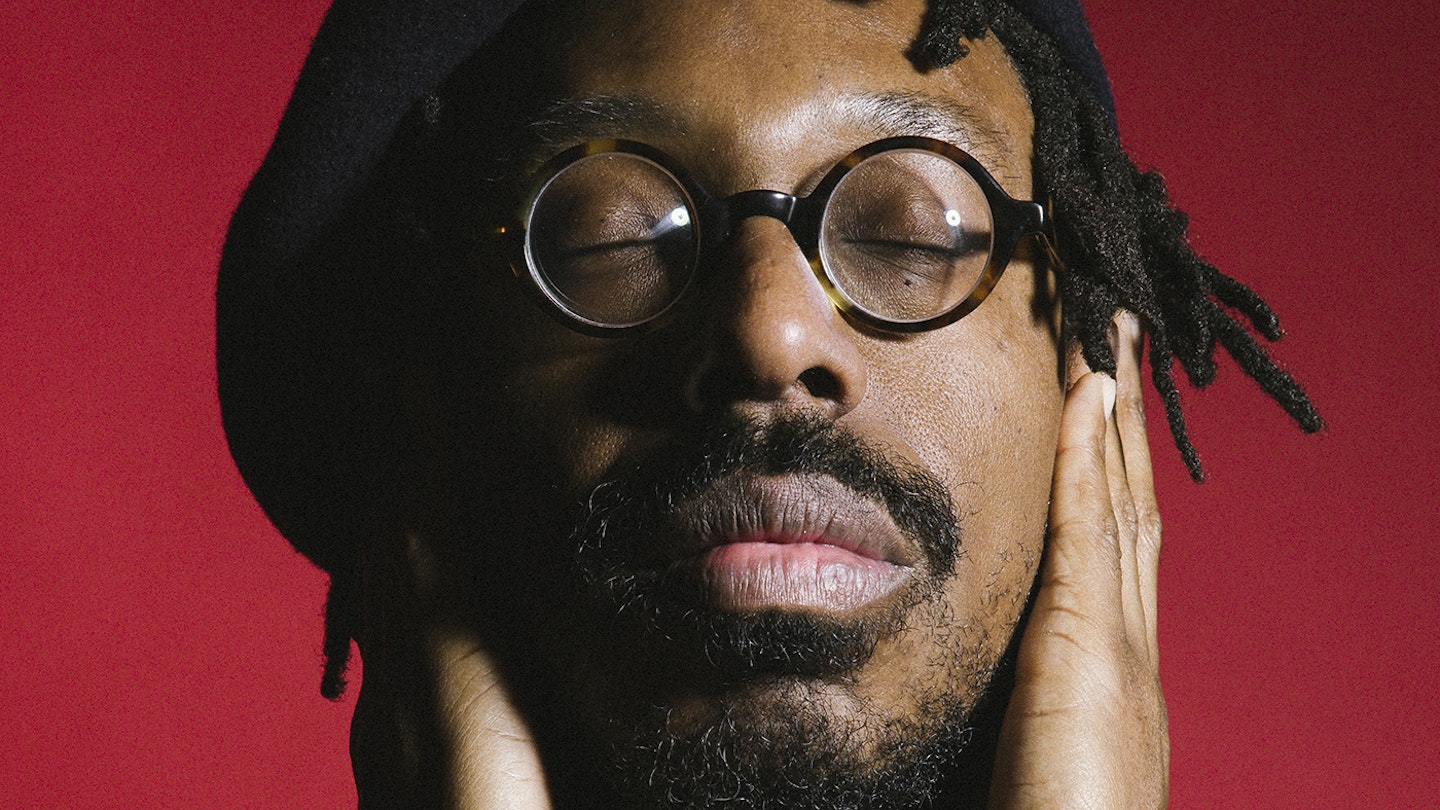Out now on Impulse!, Shabaka Hutchings’ latest album Perceive Its Beauty, Acknowledge Its Grace finds the British jazz lynchpin putting down his saxophone and utilising a brace of woodwind instruments for a questing, mediative journey. Here, Shabaka speaks to MOJO’s John Mulvey about retiring “the big metal horn”, Wim Hof techniques, his favourite flute and more...
You said farewell to the saxophone with quite a bang, taking on John Coltrane and Pharoah Sanders’ repertoire at two gigs in late 2023. How did you feel after those shows?
It's weird when you come to the end of something musically, it forces you to sharpen up. The last three Sons Of Kemet gigs we did a year ago were three of the greatest gigs of my whole career, and those last two gigs were strong on the heels of that. There's something about knowing this is it - there's no room for manoeuvre, it’s your chance to make your statement. Because it was in the service of Coltrane and Pharoah, it felt like I was taking on some of their spirit for those performances in a way that shouldn't be replicated, in a way that was more reverential.
An obsession with flutes and the global connections between different flute traditions seems to be critical to the concept of this record.
Yeah, exactly. When I got into the studio to lay the foundations down [in May 2022], the only objective was to see how these various flutes responded to the musicians I'd brought into the room. The shakuhachi I'd been practicing the most consistently, so that's the one that showed itself most. But then for instance on the track I did with [pianist] Nduduzo Makhathini from South Africa, the quena flute, which is an Andean flute, was the one that featured. Having all these instruments at my disposal increased the sonic palette.
At the start of 2022 I decided that in two years I'd be putting down the sax, bringing the bands to a close and starting the whole flute thing. Which was audacious, because I wasn't particularly good at the flute at that time, I just had an inkling that for me to get better and progress, I'd have to make a sacrifice.
A year and a half after recording, I'm much better at playing the flute than I was. But all I could do was try to be creative with what I could do. And I think that's the key to creativity, actually - seeing what you can do with limited resources. Sometimes being too proficient at your instrument creates a situation where you don't have to force yourself to be legitimately creative. You can just do what you've practiced and what you know how to do.
Is there any connection between the idea of meditative breathing and the breathwork required for different instrument playing?
That’s a really important part of my practice with the flutes. It’s watching how I progress through the course of one breath, how I come from silence to the full expression of the note, and then back down to nothing. My constant battle with the flutes is to try and avoid making them an extension of what I was doing on the saxophone. The music I’d been making with the saxophone and in the bands was the ultimate exposition of speaking outwardly. But then there’s an inner voice that tells me what needs to happen is a change in texture, a change in emotional landscape or sonic landscape.
When you were with Sons Of Kemet, you used to do collective Wim Hof breathing exercises, is that right?
Yeah, and a lot with The Comets. That was a big part of it. I don't do the Wim Hof technique so much now, but I do breathing awareness. There's different breathing techniques and I do one now that involves breathing more slowly, where you breathe through your nose and you elongate the in-breath and have a less intentional out-breath. Instead of doing it collectively I'll do by myself, so that I'm not actually involved in anyone else's rhythm.
To call a lot of the saxophone music you made more aggressive seems like a bit of a simplification, but there is something more obviously sensitive and introverted about the sound of the flutes and the sound of this record than the more full-on music you made, especially with Kemet?
Yeah. In each of Kemet's records there were always elements of introspection and sensitivity, but in general they came at the sidelines. The more introspective moments are generally the things that I go back to most on a personal level. But I guess the saxophone, in terms of the way I was playing in the past, inspired that kind of intensity because I was blowing more air down the instrument and hyping myself up. Which is cool. There's a need for that, but I feel like there's a need for all expressions of the emotional landscape.
How did this record come about as a predominantly American one?
Mainly because I've been touring so much in America over the last few years. You meet all these musicians on the road and the thing you always tell them is I wish we could get together. So having the opportunity to record in a studio that's so seminal [the Van Gelder Studios in New Jersey] and being able to invite all these musicians, it was a chance to materialise some things that have been hovering in the air. There's something about maintaining connections that have been brewing over a long time. But then there's also, I think, a lot of benefit to showing yourself in the studio with musicians who you've not actually played with that much before and seeing what comes up.
I've had a relationship with Carlos [Niño] for a number of years and every time I'd go to LA, he'd take me around and introduce me to certain musicians and we'd play and record a lot. It was Carlos who invited Surya [Botofasina] and Laraaji to the studio. There was so much created in these sessions. We played with Laraaji for a few hours, and then that moment of laughter was the one that made it onto the record. But there was a lot of beautiful music made around that.
Were there any records or artists that inspired what you were doing?
It's always about things that have been ingrained in the subconscious over a long period of time. So, something like Bjork's Vespertine album, especially the latter half of that album, things like An Echo, A Stain; that kind of landscape is with me. Antony And The Johnsons, the album that has One Dove on it [The Crying Light]. Joanna Newsom also, her album Ys is one of my favourite albums.
Was the Anum Iyapo poem something you've known for a long time?
Well yeah, he's my dad. He really is one of the most tragically underlooked artists, I think, ever. He's a graphic designer also, he did the covers of many seminal dub albums for King Tubby and Jah Shaka, loads of them. He's a big artist in that dub world. And he also made this album [Song Of The Motherland] in 1985 that we're reissuing, which is a real groundbreaking poetry album that no one's ever heard of. He also published a couple of poetry books.
He's not really performed his poetry in many decades. He came to the studio for something else, but I brought his book in and I had the track ready for him. I hoodwinked him. And it finishes right on the last note. It wasn't an edit. That's where the poem finishes without him even having heard the music before. Really stars-aligning stuff.
What made you include that last furious saxophone solo on Breathing?
[laughs] I just thought it'd be funny. When we recorded I was still playing the saxophone, and I thought it’d be like a voice from the past popping up, like the ghost of the saxophone introducing itself. I put those flutes at the end of it, something whimsical taking the sax away.
As of today, what’s your favourite flute? Which one of all these different flutes that you're collecting and learning about is the one that excites you most right now?
That's a tough question. I just got a pair of copper flutes from this maker in Brazil. I'm really enjoying playing copper at the moment, it resonates in quite a dense way and gets a real dark sound. I've got a bunch of badass flutes, I've got a lot of real top level instruments of all sorts, but I'm thinking about the three shakuhachi flutes I've actually made myself in Japan. There's nothing like playing a flute that you've taken from the ground and actually made yourself.
Perceive Its Beauty, Acknowledge Its Grace is out now on Impluse!.
Listen To/Buy: Spotify | Apple Music | Amazon | Rough Trade | HMV
Get the definitive verdict on all the month's best new albums, reissues, books and films only in the latest issue of MOJO. More information and to order a copy HERE!

